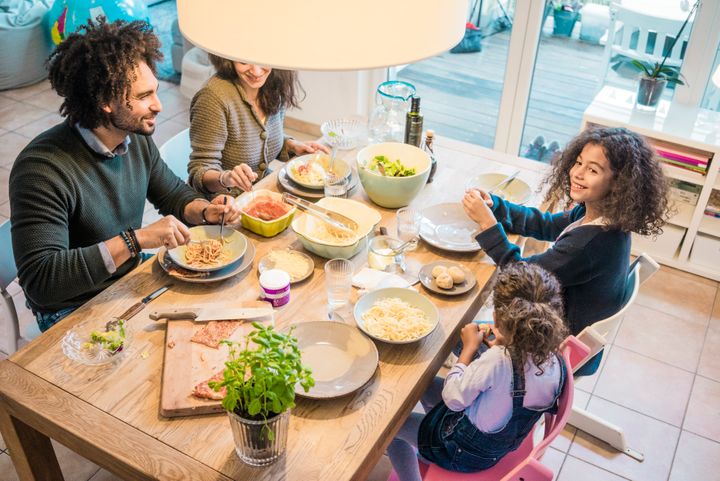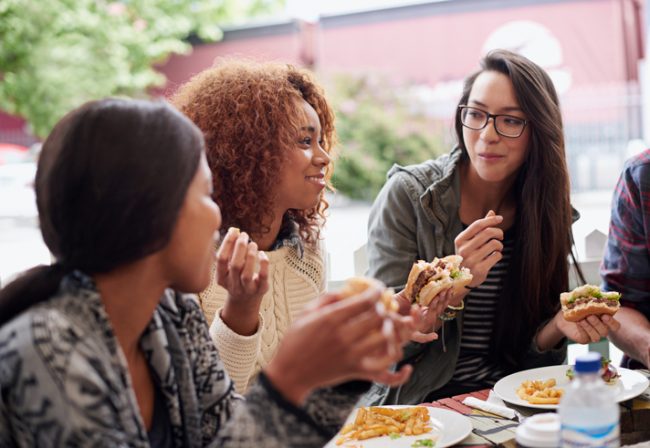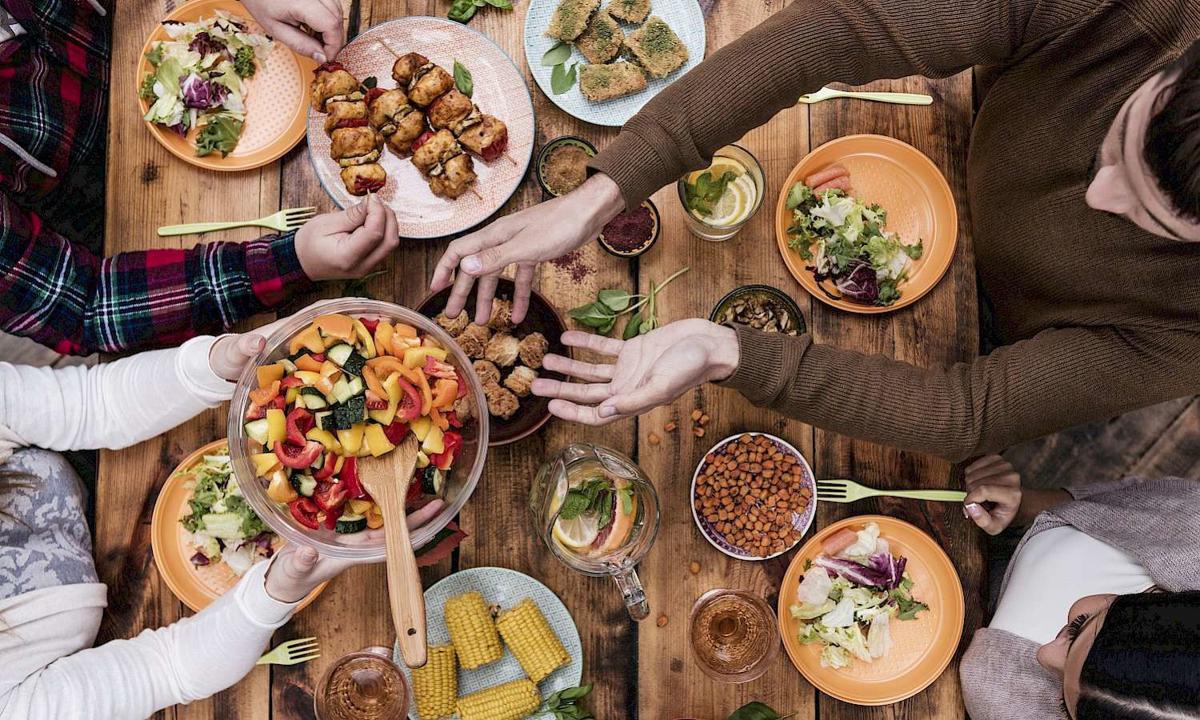Think of the last time you shared a meal with someone. Maybe it was a friend, a co-worker or a loved one. Why did you plan this meal together? Was it to have an important business conversation or catch up after a long time of not seeing each other? Or maybe just to spend some quality time together. Whether it’s a business lunch or a holiday dinner, shared meals bring people together, build community, and create a sense of belonging.
Since early times of social development, gathering, preparing, and sharing food has been a pillar of community-building.
If you look at human history anywhere from the early days of hunter-gatherer societies, to modern-day Sunday brunch and family dinner, food plays a large role in how we interact with the people around us.
With this in mind, let’s take a closer look at the importance of shared meals in social engagements, and the role food plays in strengthening communities.
The importance of family dinner
There are many traditions around the world that draw families together to share time and space. From the smallest daily events like home-cooked family dinners to the bigger celebrations like graduations, weddings, or anniversaries, food is always the first order of business.
The role food plays in our social interactions is hard to ignore as it’s deeply rooted in our personal identities and practices. After all, food is a basic survival need, so sharing food, on a primal level, is the most powerful act of care imaginable.
So what is the role of sharing meals as a family and is it an important practice to maintain?

Studies have shown that families that share meals often show great benefits for the children and youth in the household. A 2004 study on the effects of family meal dynamics on well-being, observed that families that often share meals together tend to see fewer cases of depression and affective disorders in their young members.
This study also suggests that family meals are a great opportunity to teach children about social manners, nutrition, and healthy eating habits. This equips them with tools to lead a healthier life further down the line.1 Furthermore, some studies have suggested that students that are exposed to frequent family meals are less likely to face issues such as substance abuse, tend to eat healthier diets, and have higher academic performance rates.2
What about shared meals in adulthood?
There is plenty of evidence to suggest children benefit greatly from shared meals with their parents or household members. But, what happens after the kids grow up and leave the household?
A study from the University of Minnesota surveyed a group of teenagers exploring their family eating habits and traditions. After 10 years the researchers followed up with the group and found that teenagers who had dinner with their family frequently reported continuing this tradition with friends later on.3
Clearly, more frequent shared meals provide space for socialization and community building far past childhood and teenage years. Moreover, frequently shared meals are associated with higher quality food consumption and a higher intake of fruits and vegetables.
The tradition of socialization in meal sharing and influence of healthy options in shared meals can go a long way when spread through communities. University students that leave home, for example, are more likely to engage in healthy eating habits if surrounded by other healthy eaters.4 In fact, the manager of student nutrition & wellbeing at the University Of British Columbia encourages students to eat with friends, stating these four benefits of having company during meals5:

1. Healthier eating habits
2. Better social support and connection
3. Better academic performance
4. Lower risk of substance abuse
How workspaces can benefit from shared meals
Whether it’s family, friends, or co-workers, the effects of community building, healthy habits, and socialization through meal sharing vary amongst communities. When it comes to the workplace in particular, creating space to share mealtimes is one of the best ways to bring a team together. Our recent blog on investing in healthy eating sheds light on the benefits of shared meals and proper nutrition in the workplace.
According to a study from Cornell University “food acts as a social glue” and is vital to building a strong team. Kevin Kniffin, who authored the study, observed eating behaviours among teams that require strong collaboration, including army platoons and firefighting peers. He stated that teams that have the tradition of sharing mealtimes tend to demonstrate higher levels of teamwork and collaboration.6
Research has clearly shown that sharing meals can greatly boost our wellbeing. It benefits not only our physical health but also our social and emotional wellness.
From home to the workspace, communities of all kinds would benefit from more shared mealtimes. They can help individuals find a sense of belonging and support within a team. At a community level, this individual wellness and sense of belonging can boost team performance, family connectedness, and peer support.
Plan your team lunch with our corporate catering solution.
References
- Eisenberg ME, Olson RE, Neumark-Sztainer D, Story M, Bearinger LH. Correlations Between Family Meals and Psychosocial Well-being Among Adolescents. Arch Pediatr Adolesc Med. 2004;158(8):792–796. doi:10.1001/archpedi.158.8.792
- https://www.casacolumbia.org/addiction-research/reports/importance-of-family-dinners-2012
- Larson, N., Fulkerson, J., Story, M., & Neumark-Sztainer, D. (2013). Shared meals among young adults are associated with better diet quality and predicted by family meal patterns during adolescence. Public Health Nutrition, 16(5), 883-893. doi:10.1017/S1368980012003539
- Sogari, G., Velez-Argumedo, C., Gómez, M. I., & Mora, C. (2018). College Students and Eating Habits: A Study Using An Ecological Model for Healthy Behavior. Nutrients, 10(12), 1823. https://doi.org/10.3390/nu10121823
- Baker-Wilson, M., RD, MHSc. (n.d.). 4 reasons to eat meals with friends. Retrieved April 14, 2021, from https://food.ubc.ca/4-reasons-to-eat-meals-with-friends/
- Kevin M. Kniffin, Brian Wansink, Carol M. Devine & Jeffery Sobal (2015) Eating Together at the Firehouse: How Workplace Commensality Relates to the Performance of Firefighters, Human Performance, 28:4, 281-306, DOI: 10.1080/08959285.2015.1021049





